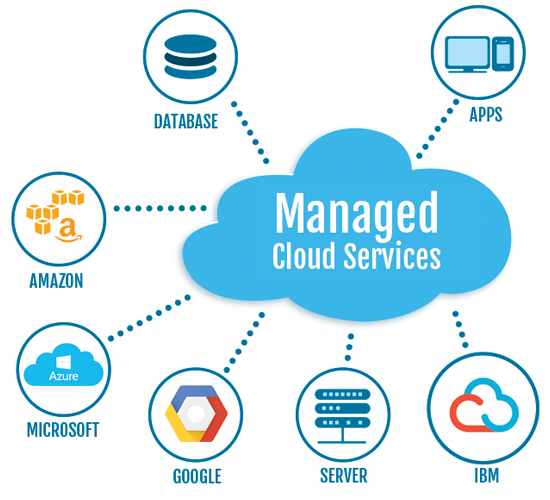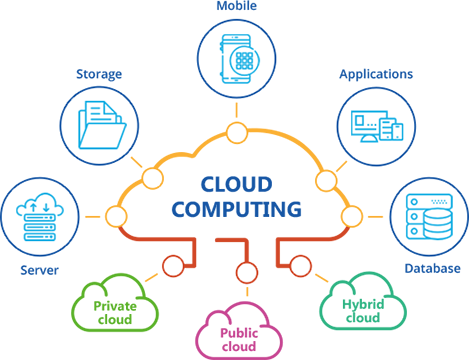LinkDaddy Cloud Services Decoded: Insider Insights into Universal Cloud Service Advancements
LinkDaddy Cloud Services Decoded: Insider Insights into Universal Cloud Service Advancements
Blog Article
Streamline IT Management With Cloud Provider
In today's swiftly progressing electronic landscape, the role of IT management is becoming progressively intricate. Organizations are continuously seeking ways to streamline their IT procedures to stay affordable and nimble. Cloud services have actually become a viable service for organizations aiming to improve performance, reduce expenses, and enhance overall IT efficiency. By welcoming cloud innovation, business can accomplish higher adaptability, scalability, and security in handling their IT facilities. How precisely do these cloud services transform typical IT monitoring methods? Allow's explore the transformative impact of leveraging cloud services on IT operations and the key factors to consider for effective execution.
Benefits of Cloud Provider

Moreover, cloud services allow organizations to enhance their operational effectiveness by streamlining processes and reducing the moment and resources required for managing IT framework. With cloud solutions, services can automate routine tasks, such as software updates and information backups, liberating IT teams to focus on more tactical efforts that drive business worth.

Boosted Scalability and Versatility
Cloud services give organizations with unmatched scalability and adaptability in managing their IT resources successfully. With cloud services, organizations can swiftly scale up or down their computer sources, storage ability, and network data transfer to satisfy altering needs without the demand for significant in advance financial investments in equipment.
In addition, cloud solutions give the flexibility to choose from a variety of service versions, such as Framework as a Solution (IaaS), Platform as a Solution (PaaS), or Software Application as a Service (SaaS), based on the details requirements of the company. The enhanced scalability and adaptability offered by cloud solutions encourage services to enhance their IT operations and stay active in today's dynamic market environment.

Cost-Effectiveness and Savings
With the ability to effectively assign resources based upon need, companies making use of cloud solutions can harness significant cost-effectiveness and recognize significant cost savings in their IT procedures. Cloud solutions use a pay-as-you-go version, permitting business to only spend for the sources they make use of, getting rid of the need for huge in advance investments in hardware and software. This scalability ensures that businesses can conveniently adapt to varying needs without overspending on unnecessary sources. Additionally, cloud services decrease maintenance costs by shifting the duty of hardware maintenance and software application updates to the company. This decreases the need for devoted IT staff to manage facilities, further cutting down operational costs. The cloud supplies economic situations of range, with service providers spreading out prices throughout several clients, resulting in lower private expenses for solutions like storage space and computing power. Generally, the cost-effectiveness and financial savings accomplished with cloud services enable businesses to reapportion sources towards development and development campaigns.
Improved Safety and Conformity
Enhancing the overall safety pose and making certain governing conformity are vital considerations for businesses leveraging cloud solutions in their IT monitoring approaches. Cloud service providers supply sophisticated security measures, such as information file encryption, multi-factor verification, and automated backups, which can boost a business's protection framework. These suppliers likewise follow rigid governing standards, such as GDPR, HIPAA, and PCI DSS, assisting companies fulfill conformity requirements more effectively.
Implementing cloud services can improve safety and security by providing centralized control over gain access to administration, tracking, and data security. This central method simplifies protection management and guarantees consistent application of safety policies across the company. Moreover, cloud solutions usually provide real-time security updates and spots, reducing the threat of susceptabilities and potential breaches.
Best Practices for Cloud Application
Implementing cloud services effectively requires an organized strategy that incorporates complete preparation and diligent execution. To guarantee a smooth transition to the cloud, companies need to begin by conducting a comprehensive analysis of their existing IT framework and determining which workloads appropriate useful reference for movement. It is important to develop clear goals and define crucial efficiency indicators (KPIs) to measure the success of the cloud implementation.
Among the very best practices for cloud implementation is to very carefully choose a cloud solution provider that lines up with the organization's needs in terms of safety, cost-effectiveness, compliance, and scalability. Furthermore, producing an in-depth movement plan that describes the steps involved, timelines, and responsibilities is critical for a successful implementation.
Frequently keeping track of and enhancing cloud sources to make sure effective performance and price monitoring is an additional important aspect of cloud application best practices. Continuous examination of the cloud setting and remaining informed concerning updates and new attributes supplied by the cloud supplier can better boost the company's cloud strategy. By adhering to these ideal practices, companies can simplify their IT management and make best use of the benefits of cloud services.
Final Thought
To conclude, leveraging cloud solutions for IT administration offers various benefits, consisting of improved scalability, cost-effectiveness, enhanced safety, and compliance. By adhering to ideal methods for cloud implementation, organizations can streamline their IT operations, automate routine tasks, and optimize source allotment. This structured strategy allows IT teams to concentrate on strategic initiatives and innovation, eventually providing value to the organization. On the whole, cloud services boost functional efficiency and dexterity in managing IT framework.
Additionally, cloud solutions supply the versatility to select from a range of service versions, such as Facilities as a Solution (IaaS), Platform as a Service (PaaS), or Software as a Solution (SaaS), based on the details demands of the company. Additionally, cloud services reduce upkeep costs by shifting the duty of hardware upkeep and software program updates to the service supplier.Enhancing the overall security position and guaranteeing regulative conformity check it out are extremely important factors to consider for organizations leveraging cloud solutions in their IT management techniques.Consistently monitoring and maximizing cloud resources to guarantee efficient performance and expense monitoring is one more essential facet of cloud application ideal methods. Continuous examination of the cloud environment and try this site staying educated regarding updates and brand-new attributes used by the cloud copyright can better improve the company's cloud technique.
Report this page